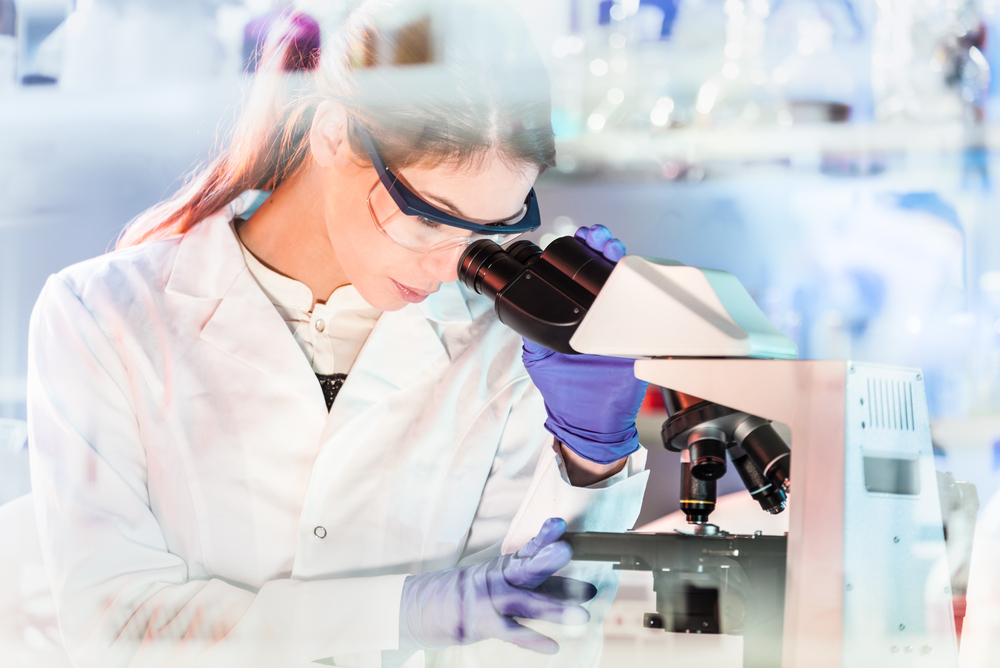AxoSim Licenses Mini-Brain Technology, Which May Speed Therapy Discovery for Neurological Diseases
Written by |

AxoSim has acquired exclusive rights to lab-grown brain miniatures, coined “Mini-Brain,” a technology developed at Johns Hopkins University that uses stem cells to create models of the human brain in a dish. This technique may help speed therapy discovery for many neurological diseases, including multiple sclerosis (MS).
By mimicking the cells and interactions found in the human brain better than animal models, the Mini-Brain opens a new window to study key brain functions and speed drug discovery for neurological disorders at an early stage of research.
The technology is based on tiny brain-like organoids — very small, self-organized 3D organ models growing in a dish — derived from induced pluripotent stem cells (iPSCs). These are adult cells (typically skin cells) that have been reprogrammed genetically to return to an embryonic stem cell-like state. Researchers usually stimulate these cells in the laboratory to grow them into different cell types.
To create bini-Brains, iPSCs are differentiated into brain cells, which are engineered to form tiny, uniform spheres barely visible to the human eye. After several months in lab cultures, these spheres ultimately develop different types of nerve cells and support cells of the nervous system. They also start producing myelin sheaths, the nerve cell insulator essential for the rapid conduction of nerve impulses.
In fact, those miniature brains take about 10 weeks to develop, and resemble the brains of developing fetuses, according to a John Hopkins article written by Julie Scharper.
Importantly, nerve cells on mini-brains can communicate with each other, sending electrical impulses from one cell to the next, and can interact with their surrounding environment. Another important aspect is that the platform can be replicated on a large-scale.
The cells used to derive iPSCs to generate the mini-brains can be collected from healthy individuals or from subjects with certain genetic traits or diseases, including MS, Alzheimer’s disease, Parkinson’s disease, and other trauma-related and infectious disorders. This allows the tailoring of the mini-brains to study specific brain conditions.
According to John Hopkins researchers, mini-brains are not only less expensive and easier to maintain than rats, they also more accurately reflect the human nervous system, compared with animal models.
Hence, these models are expected to predict human outcomes better, and avoid therapy failures later on during clinical trials, compared to the animal models normally used in preclinical research. Consequently, they hold potential to reduce the time and costs of drug discovery for several neurological disorders.
As an example, the related AxoSim’s Nerve-on-a-Chip technology has attained research milestones at a fraction of the time and cost of conventional animal testing, the company said in a press release.
“Acquiring rights to the intellectual property underlying the Mini-Brain technology is a major step forward in our drive to transform neurology drug research,” Lowry Curley, PhD, CEO of AxoSim, said in the release.
“Mini-Brains are live organoids that mimic multiple brain functions, allowing for a wide variety of applications in neurotoxicity and neurological diseases with the potential to substantially speed-up and increase the effectiveness of new drug R&D [research and development],” Curley added.
According to AxoSim’s CEO, “the Mini-Brain technology complements our innovative Nerve-on-a-Chip platform, and accelerates our strategy of providing the broadest and most scientifically robust neuroscience models to our growing roster of biopharmaceutical partners.”
While scientists over the world have been trying to create lab-grown miniature brains, the team of Thomas Hartung, MD, PhD, at John Hopkins was the first to invent an easily reproducible organoid of the human brain.
Hartung is director of the Center for Alternatives to Animal Testing at the Johns Hopkins Bloomberg School of Public Health. In the wake of AxoSim’s licensing of Mini-Brain technology, he will serve as a consulting vice president of scientific affairs for the company.
AxoSim also acquired all the assets of Organome, a company founded by Hartung, to commercialize the Mini-Brain technology and other organoids.
“AxoSim now provides a suite of models across the central nervous system and peripheral nervous system and has the only two commercially available platforms with 3D human-relevant myelination,” said Benjamin Cappiello, chief business officer of AxoSim.
“Our world-class team strives to add significant value as an extension of preclinical discovery and toxicology at our biopharmaceutical partners, providing early human data that significantly accelerates research programs while substantially reducing costs,” Cappiello said.


